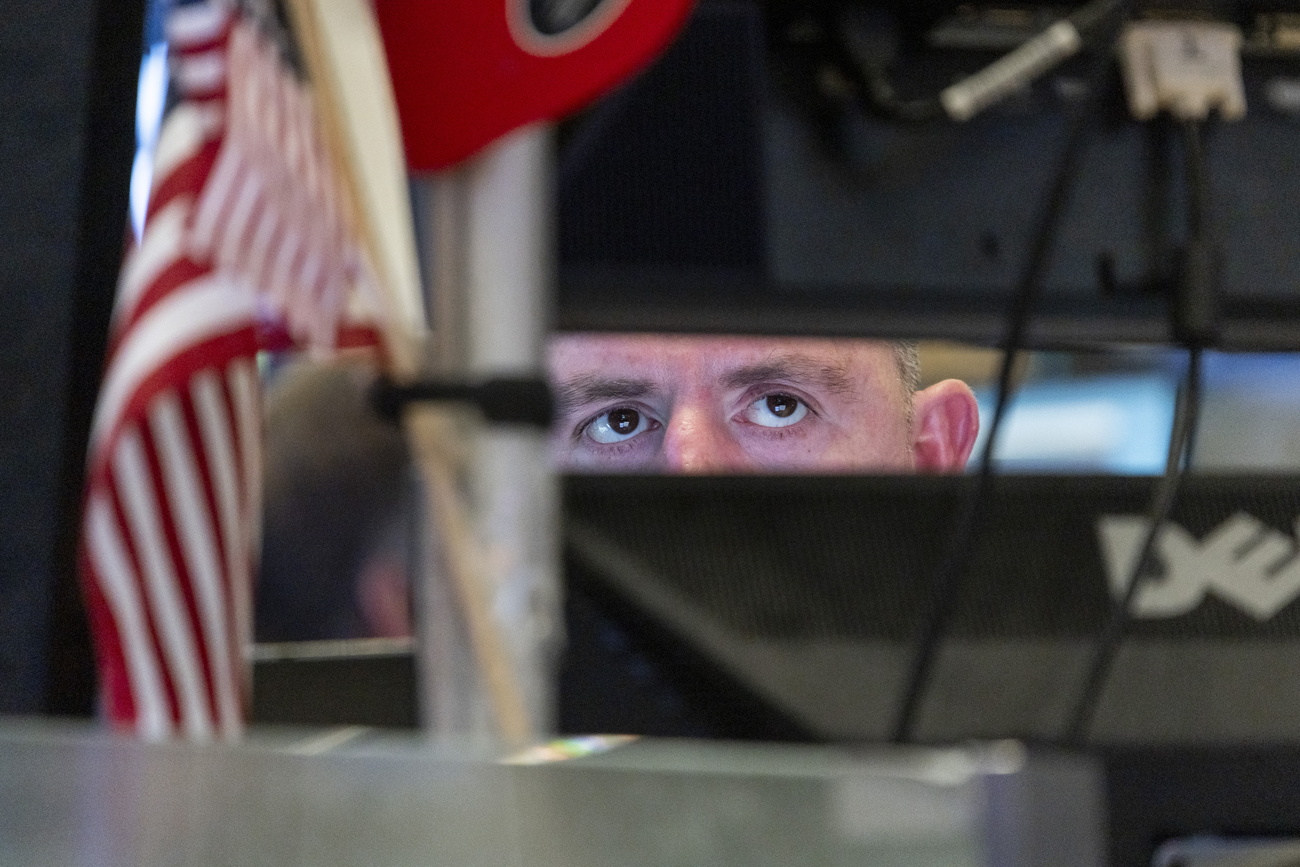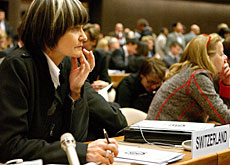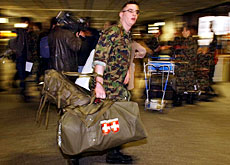Tsunami fund helps rebuild lives

Most of the SFr25 million ($21 million) pledged by the Swiss government in emergency aid for tsunami victims has already been allocated for relief projects.
But Swiss Foreign Minister Micheline Calmy-Rey says the challenge of helping to rebuild shattered lives has only just begun.
Calmy-Rey travelled to Sri Lanka and Thailand soon after the tidal waves struck the coastlines of several countries in southeast Asia on December 26.
She saw first-hand the devastation which has claimed the lives of more than 226,000 people and left millions homeless.
The SFr25 million credit package pledged by the government last month was on top of an emergency payment of SFr2 million made available immediately after the undersea quake.
In an interview with the Berner Zeitung, Calmy-Rey said she did not believe the tsunami disaster meant that other parts of the world in need of international help would be forgotten.
You were one of the first politicians to visit Asia after the tidal-wave disaster. Why did you decide to travel to the region?
Micheline Calmy-Rey: I went to Thailand and Sri Lanka because Switzerland has a special relationship with both these countries. We are, for example, extremely active in Sri Lanka in the fields of development work and peace promotion.
Thailand is of course a popular tourist destination for Swiss holidaymakers. And it is there that most of the Swiss lost their lives after the tidal waves hit.
I wanted to get an idea for myself of the scale of the disaster and I was also keen to know how the Swiss people there were coping.
You and your department came in for criticism after the disaster, notably from a number of Swiss [in Thailand] who said they felt they did not get the assistance they had expected from their embassy in Bangkok.
M.C-R.: I have passed these concerns on to the diplomatic inspectorate for investigation. But it has to be said that these were exceptional circumstances and mistakes were unavoidable. It’s certainly possible that an exhausted embassy employee may not have come across as particularly friendly. I can understand that.
If it turns out that we are talking about not just individual cases but about a more general problem, I will take the necessary steps. But I think that everyone working here in Bern and in Thailand was very motivated and in general did a good or very good job.
The solidarity which the international community has shown to those affected by the tsunami is without precedent. Isn’t there a danger that other parts of the world which are also in need of help will be forgotten?
M.C-R.: I think the reverse is true. People are suddenly talking again about Africa, and in particular about Darfur in Sudan. And this is precisely because the media keeps reporting that the world should not forget what is happening elsewhere.
The Swiss government has not forgotten [that other regions are in need of help]. The SFr25 million we pledged for southeast Asia will not lead to cuts in the budget for development work in other areas. And I am very grateful to my cabinet colleagues for this.
The focus in southeast Asia is now on reconstruction. Where and how is Switzerland getting involved?
M.C-R.: I have seen for myself that you cannot separate emergency-relief efforts from reconstruction work. In Thailand, for example, you saw both activities going on at the same time. People started straightaway with the clean-up operation.
We’re investing SFr2.5 million in the reconstruction of three [Thai fishing] villages. This project is not just about building up the infrastructure, which will be carried out by the local residents themselves. We will also help to ensure that people whose livelihoods depended on fishing will once again have access to boats and nets, so that they can go back to their old jobs.
Some Swiss charities have expressed concern about the idea of Switzerland building model villages, while those in neighbouring villages will get nothing. What’s your response?
M.C-R.: It’s not like that at all. We are working in close cooperation with the government. It’s important to us that our money is properly invested and not frittered away.
The project [to rebuild three villages] is also supposed to be in some sense a way of remembering the many Swiss who lost their lives in Thailand.
Reconstruction in the countries affected by the tsunami will cost a huge amount of money. Will the Swiss government offer any additional funds?
M.C-R.: It’s too early to say whether this will be possible. Our experts are out in the field and assessing where help is needed. What is clear is that our focus will be on Sri Lanka and Indonesia, the countries which were worst affected by the disaster.
What is also clear is that by [mid-January] SFr23 million of the SFr25 million pledged by us had either been earmarked for projects or had already been spent.
swissinfo-interview: © David Sieber, Berner Zeitung
The Swiss government has pledged SFr25 million for relief work in southeast Asia.
This money is in addition to SFr2 million in emergency funds made available immediately after the December 26 tsunami.
The Swiss public has donated SFr183 million to help victims of the floods.

In compliance with the JTI standards
More: SWI swissinfo.ch certified by the Journalism Trust Initiative










You can find an overview of ongoing debates with our journalists here . Please join us!
If you want to start a conversation about a topic raised in this article or want to report factual errors, email us at english@swissinfo.ch.